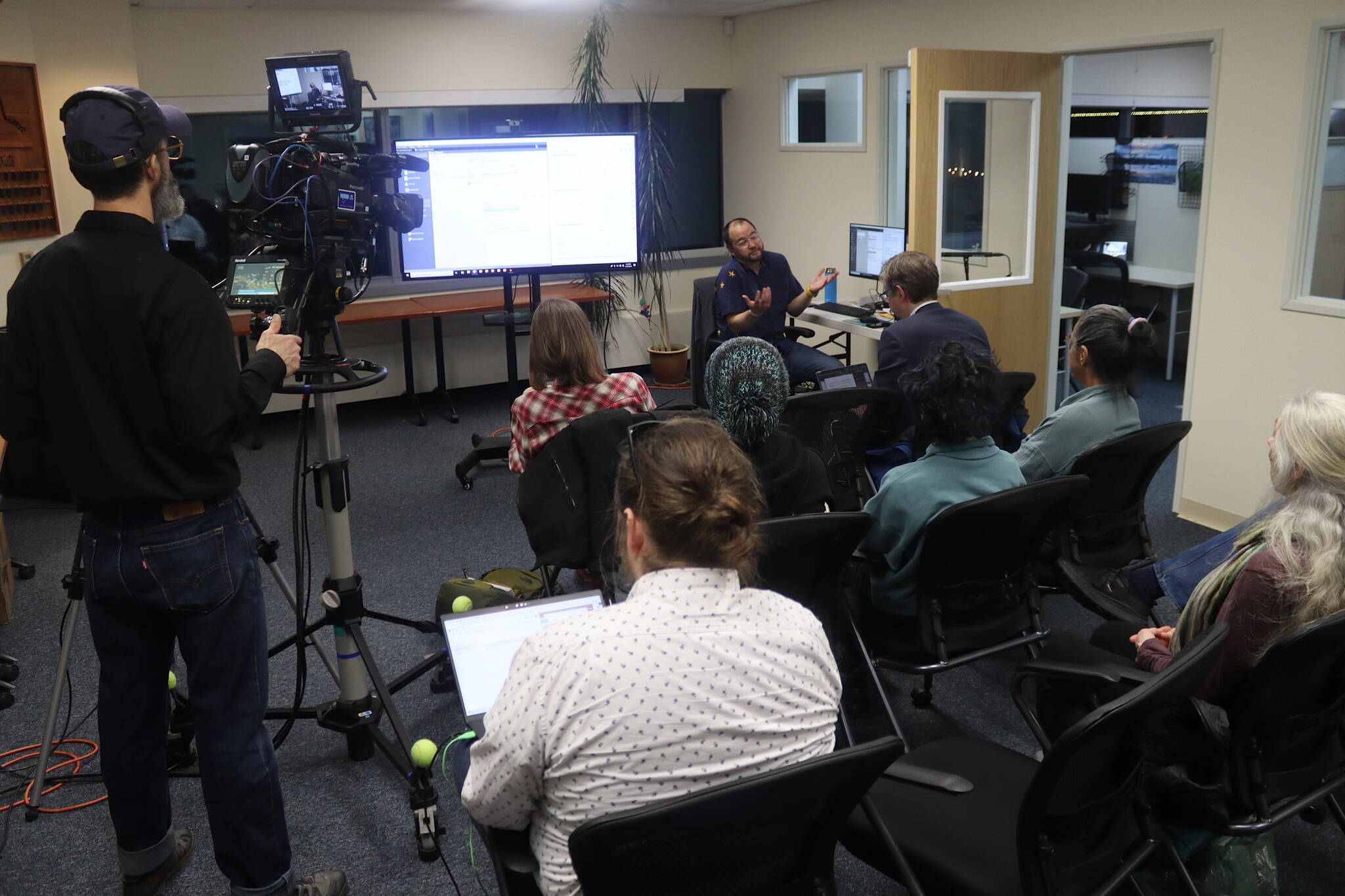This is a developing story.
Ranked choice voting and open primaries will be in place for another election cycle in Alaska after an attempt to repeal them narrowly failed, according to the unofficial tally of final results from the Nov. 5 general election from the state Division of Elections on Wednesday evening.
The results also confirmed Republican Nick Begich III will replace Democrat Mary Peltola as Alaska’s lone U.S. House member, following a ranked choice tabulation of that race when Begich fell short of a majority of first-choice votes. After second- and third-choice ballots were tallied from two minor candidates, Begich had 51.3% to Peltola’s 48.7%.
Begich, in a statement on his Facebook, declared “it will be the honor of a lifetime to have the opportunity to serve as your voice in Congress.”
“The path forward begins with a unified understanding of what Alaska can do for the rest of our nation,” he wrote. “Together, we will deliver results for Alaska, creating long-term jobs, protecting our way of life, and playing our part to put America back on track. Alaska’s resources are not only a blessing for the people of our state – they are vital to the strength and independence of our entire nation.”
Peltola, in a prepared statement released by her campaign immediately after the results were announced, said “working for Alaska as a member of our federal delegation has been the honor of my life.”
“The path ahead will not be built by one person or three people working for all of Alaska, but by all Alaskans working together to build a future that works for all of us,” she said. “No one in the Lower 48 is coming to save us. It’s up to us. As I close out this campaign and term in Congress, I want to thank my family and staff. Your sacrifices for Alaska might go unseen by most, but we all know their impact.”
Begich led Peltola by about 5% in an initial Election Night count, but Peltola narrowed the gap during the next two weeks as additional ballots mostly from rural areas where she ran strong were counted. On Wednesday evening the tally of first-choice votes placed Begich ahead 48.4%-46.4%. That gap narrowed to 48.86%-46.94% as the second-choice ballots of the last-place candidate — New York prison inmate Eric Hafner, who got 1% of first-choice votes as a Democrat — were added to the three remaining candidates.
But then second-choice votes for the third-place candidate — Alaskan Independence Party chair John Wayne Howe, considered highly conservative — were tallied. Begich got 4,783 second-choice votes compared to 2,702 for Peltola (with 6,188 Howe voters not ranking a second candidate), giving the Republican challenger enough to claim a majority.
Ballot Measure 2, repealing ranked choice and open primaries, failed with 160,619 (50.1%) votes against and 159,955 (49.9%) in favor, according to the unofficial results posted at 5:05 p.m. Wednesday.
“We are thrilled that Alaskans from all over the state with diverse views and different backgrounds came together to preserve the system that empowers voters to elect representatives that will put Alaska first,” a statement by the opposition group No on 2 declared. “We want to thank everyone who worked to protect these hard-won, voter-approved reforms — from the volunteers and organizations who spent countless hours having conversations in our communities to every single Alaskan who voted to protect our freedom to vote for any candidate in any election, regardless of party.”
Philip Izon, a Wasilla resident who launched the repeal effort after the 2022 election when ranked choice voting occurred for the first time in the state — said before Wednesday’s count he intends to seek another repeal in two years. Meanwhile, other supporters of the repeal — including state lawmakers — have made accusatory statements about the 15-day counting period following the election while the measure’s Election Night lead diminished and vanished.
Certification of the results is scheduled Nov. 30, following a standard post-election audit, after which any group of 10 or more voters can request a recount within five days. There also are a relative handful of unscanned ballots that arrived by the mandated deadline, but not yet tabulated in the early evening count Wednesday.
Wednesday’s count resulted in one notable lead switch in a state legislative race, as Republican challenger David Nelson is now leading incumbent Democratic Rep. Cliff Groh by 23 votes. Groh, who had clung to tiny margins as small as 10 votes in updated counts leading up to Wednesday, told the Anchorage Daily News on Wednesday night he is reviewing his options including a request for a recount.
If Groh is defeated it means the House will apparently have 21 members — the bare minimum — in a bipartisan majority consisting mostly of Democrats, a change from the Republican-led coalition the past two years.
The election had no impact on the makeup of Juneau’s legislative delegation since all three Democratic incumbents were unopposed. Also, the incoming bipartisan state Senate majority is retaining the same leadership as the past two years, leaving Juneau’s Jesse Kiehl with a seat on the Finance Committee as his most prominent assignment.
However, a change of leadership in the state House to a Democratic-led coalition means Juneau Reps. Andi Story and Sara Hannan will gain additional clout with legislation and committee assignments.
• Contact Mark Sabbatini at mark.sabbatini@juneauempire.com or (907) 957-2306.

